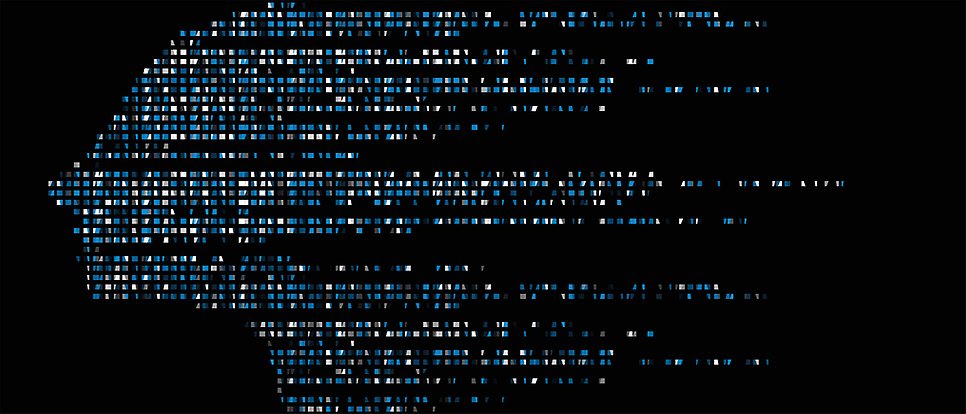Easier to share genomic data between countries

The technical solution is intended for all researchers in Swedish life sciences engaged in research on human data. Photo: Getty Images
There is now a secure and legal way for researchers in different European countries to share genomic data. National Bioinformatics Infrastructure Sweden (NBIS), the bioinformatics platform at Uppsala University’s SciLifeLab, has developed the Swedish node of the technical solution and as a first pilot project collected data on childhood tumours.
“We are pleased that NBIS as the Swedish FEGA node can now offer a solution for medical researchers who want to deposit human data in a secure and legally correct manner,” says Bengt Persson, Director of NBIS.
The technical solution is called ‘federated EGA’ and gives academic researchers in biomedicine access to human genomic data.
“The solution is based on raw data being deposited in our national node while metadata (data about data) is entered in a central function called EGA on whose home page researchers can search for metadata and, following approval, obtain secure access to raw data,” Persson explains.
Ethical approval required
Ethical approval is required to deposit and obtain access to data. In addition, a personal data controller (for example the university where the researcher works) must approve the applicant’s project description for encrypted data to be made available.
It is the biotechnology platform NBIS that has developed the technology in collaboration with other Nordic countries. They also provide helpdesk staff to guide Swedish researchers depositing and accessing data.
“Researchers were already able to deposit and find data in EGA, but sensitive data had to be deposited in another country, which could lead to legal problems. FEGA Sweden means that data will be located in Sweden,” says Johan Viklund, product owner and CTO at NBIS.
Federated EGA currently has seven member countries (Sweden, Norway, Finland, Germany, Poland, Portugal, Spain) as well as the central EGA node, but more countries in Europe and on other continents are preparing to join.
Pilot project: the Childhood Tumour Biobank
A pilot project involving the Childhood Tumour Biobank has been carried out in Sweden and 169 files, corresponding to approximately 26 TB, have been deposited in the Swedish FEGA node. The Childhood Tumour Biobank will gradually produce new data for subsequent submission. The aim is to improve the care and treatment of childhood cancer through medical research. In future, the Childhood Tumour Biobank will primarily use FEGA Sweden to share data with other researchers.
“FEGA Sweden has been made possible thanks to projects financed by Nordic e-Infrastructure Collaboration (NeIC) and good cooperation with our Nordic partners,” Viklund says.
The technical solution is intended for all researchers in Swedish life sciences engaged in research on human data.
“The value for users is twofold: it becomes easier to make data available securely than when data are stored locally, and it’s easier for other researchers to find the data. The possibility of reuse improves opportunities to verify scientific discoveries and to reach groundbreaking conclusions in new areas,” says Anna Hagwall, project manager and Head of Human Data at NBIS.
Twenty research groups on the waiting list
She is looking forward to continuing to work her way through the waiting list of data from about 20 research groups. Now that the pilot project with the Childhood Tumour Biobank has been completed, the doors are open for new users. Some data has been generated using equipment at other SciLifeLab platforms. There is a great need, Hagwall notes.
“What we are offering as pioneers in this area has already created added value in Europe among other countries that want to get started with FEGA and in other similar projects for storing some type of biomedical data. Now we are looking forward to helping Swedish researchers use our solutions to simplify their day-to-day activities.”
Annica Hulth
National Bioinformatics Infrastructure Sweden (NBIS)
- The National Bioinformatics Infrastructure Sweden (NBIS) is a national research infrastructure in the life sciences that serves as the bioinformatics platform at the Science for Life Laboratory (SciLifeLab).
- Uppsala University hosts NBIS. Other participating higher education institutions and organisations include Chalmers University of Technology, University of Gothenburg, Karolinska Institutet, Royal Institute of Technology, Linköping University, Lund University, Swedish Museum of Natural History, Stockholm University, Swedish University of Agricultural Sciences and Umeå University.
- NBIS is the Swedish node in the ELIXIR international research infrastructure.
